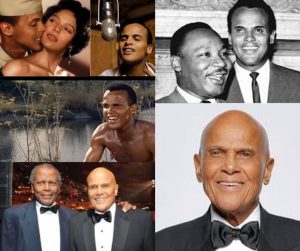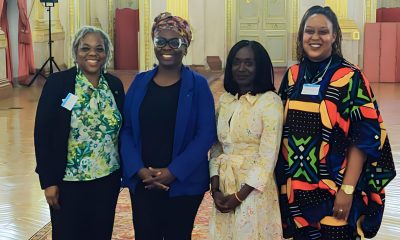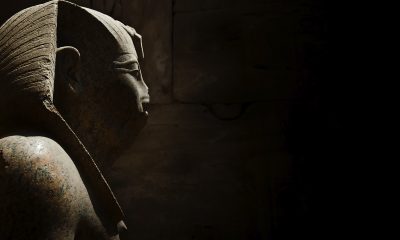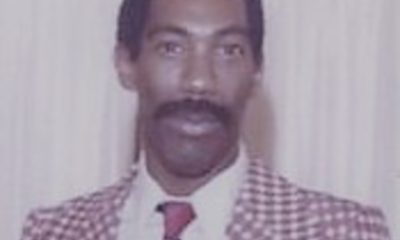Religion
Europe’s Muslims Feel Heat of Backlash After Paris Terror

In this Monday, Jan. 12, 2015 photo, demonstrators bear flags of several European countries during a rally of the group Patriotic Europeans against the Islamization of the West, or PEGIDA, in Dresden, Germany. (AP Photo/Jens Meyer)
ELAINE GANLEY, Associated Press
PARIS (AP) — Firebombs and pig heads thrown into mosques. Veiled women subjected to insults in the street. The Internet awash with threats against Muslims. Europe’s Muslims are feeling the heat of a fierce backlash following last week’s terror attack against French satirical newspaper Charlie Hebdo.
An official who keeps track of Islamophobic attacks in France said there were 60 incidents — attacks and threats — in the six days since that attack.
A climate of fear is taking hold in Europe, stoked by rightist rhetoric equating the millions of peaceful Muslims with the few plotting murder and mayhem.
Abdallah Zekri, head of the National Observatory Against Islamophobia, said that since last Wednesday’s massacre at Charlie Hebdo, 26 places of worship around France were attacked by firebombs, gunshots or pig heads, with a mosque in Le Mans hit with four grenades. There were 34 insults and threats.
The three-day terror spree in Paris claimed the lives of 17 victims, and traumatized a continent already brimming with anti-immigrant sentiment. Brothers Cherif and Said Kouachi — the al-Qaida-linked suspects in the magazine attack — were killed in a shootout at a printing plant north of Paris; their apparent accomplice Amedy Coulibaly was shot dead in a near-simultaneous raid at a Jewish market, where he had holed himself up with hostages, killing four.
French authorities are warning the nation against linking French Muslims with terrorists.
“The terrorists’ religion is not Islam, which they are betraying,” Foreign Minister Laurent Fabius said last week. “It’s barbarity.”
To make the point stick, he said he doesn’t want the word “Islamist” used to describe the killers.
“I call that terrorists,” he said this week on iTele, explaining he doesn’t want to link terrorists with those who practice their “religion of peace.”
Concerns about a backlash against Muslims were discussed Monday during a counter-terrorism meeting at the Interior Ministry. “We said above all, pretty unanimously, that in France there are 5 or 6 million Muslims. These (terrorist) issues concern 1,000 individuals,” said Socialist lawmaker Patrick Mennucci. “We should be careful not to stigmatize anyone.”
Coulibaly’s mother and daughters, presenting condolences to the victims, issued a plea in a statement delivered to the French press “that there will be no amalgam between these odious acts and the Muslim religion.”
Yet Muslims and some experts said that it was inevitable that Muslims would fall under suspicion after the attacks, despite a unity march on Sunday — described as the largest in French history — in which throngs of Muslims participated.
The rising far-right in France and other European countries has been driven by an anti-immigration, anti-Islam message. National Front leader Marine Le Pen seized upon the Charlie Hebdo attack just hours after it happened, suggesting it was a vindication of her party’s xenophobic stance. Extreme-right groups across Europe have increasingly been striking a chord with ordinary citizens voicing fears their culture is being uprooted by an alien civilization.
The fledgling German group that calls itself Patriotic Europeans Against the Islamization of the West, or PEGIDA, drew its largest crowd ever Monday night — a reported 40,000 — at its weekly rally in Dresden, after organizers declared it a tribute to the victims of the French attacks. No anti-Islamic acts have been reported in Germany since the terror.
French Muslims were already facing a backlash triggered by terror acts by French radicals twisting their religion — particularly since the rampage in southern France in 2012 in which Mohamed Merah killed three children at a Jewish school, a rabbi and three paratroopers. Anti-Islam sentiment spread further after the killing of four people by a French Muslim at the Brussels Jewish Museum in May.
Anti-Muslim and anti-Jewish incidents rose throughout 2014 in France, which has Europe’s largest communities of both religions.
“For Muslims, the shock is grave in this climate of Islamophobia, of aggressions against places of worship,” read a statement by Dalil Boubakeur, head of the French Council for the Muslim Faith and the most visible Muslim in France.
France’s state of high alert after the Charlie Hebdo rampage — with 10,000 soldiers deployed in the streets — may deepen a sense of siege within the Muslim population.
French authorities have long warned that France is a preferred target of Islamic extremists. France routed al-Qaida from northern Mali — two years ago to the day before Coulibaly attacked the Jewish market — and is now carrying out airstrikes in Iraq against the Islamic State group. Both al-Qaida and IS have threatened France.
But the attacks have had an effect outside France, too. In the Netherlands, Muslim groups and the government met Friday and said they plan to register anti-Muslim incidents. A burning object was thrown at a mosque in Vlaardingen, on the outskirts of Rotterdam.
“Everyone has this uncomfortable feeling, a sense of being threatened — Muslims because they are afraid to be stigmatized and that they will be attacked too,” said Imade Annouri, a Green parliamentarian of Belgium’s regional legislature of Flanders and an expert on integration issues.
TellMAMA, a British group that tracks anti-Muslim attacks, reported 50-60 cases of specific online threats to individuals over the weekend.
“The sheer volume is unbelievable,” said the organization’s director, Fiyaz Mughal, who fears virtual assaults could spur real ones in the street. Mughal said that after the slaying of British soldier Lee Rigby in London, the group was able to gauge how threats made on Twitter and Facebook translated directly into attacks on individuals or mosques.
Mohamed Ali Adraoui, a fellow at the European University Institute, suggested that hatred of Islam could morph into an assault on a mosque, in France or elsewhere.
“If you can do that in Charlie Hebdo offices, you can do it in a mosque,” he said.
___
Raf Casert in Brussels, Danica Kirka in London, Mike Corder in Amsterdam and Milos Krivokapic in Paris contributed to this report.
Copyright 2015 The Associated Press. All rights reserved. This material may not be published, broadcast, rewritten or redistributed.
#NNPA BlackPress
COMMENTARY: Prayer is Your Power
Terrible things happen to good people often. We live in an unjust world with people making decisions that are informed more by profit than people. We cannot take those principles into our relationship with God. We must believe that “… all things work together for good to them that love God, to them who are the called according to His purpose.”
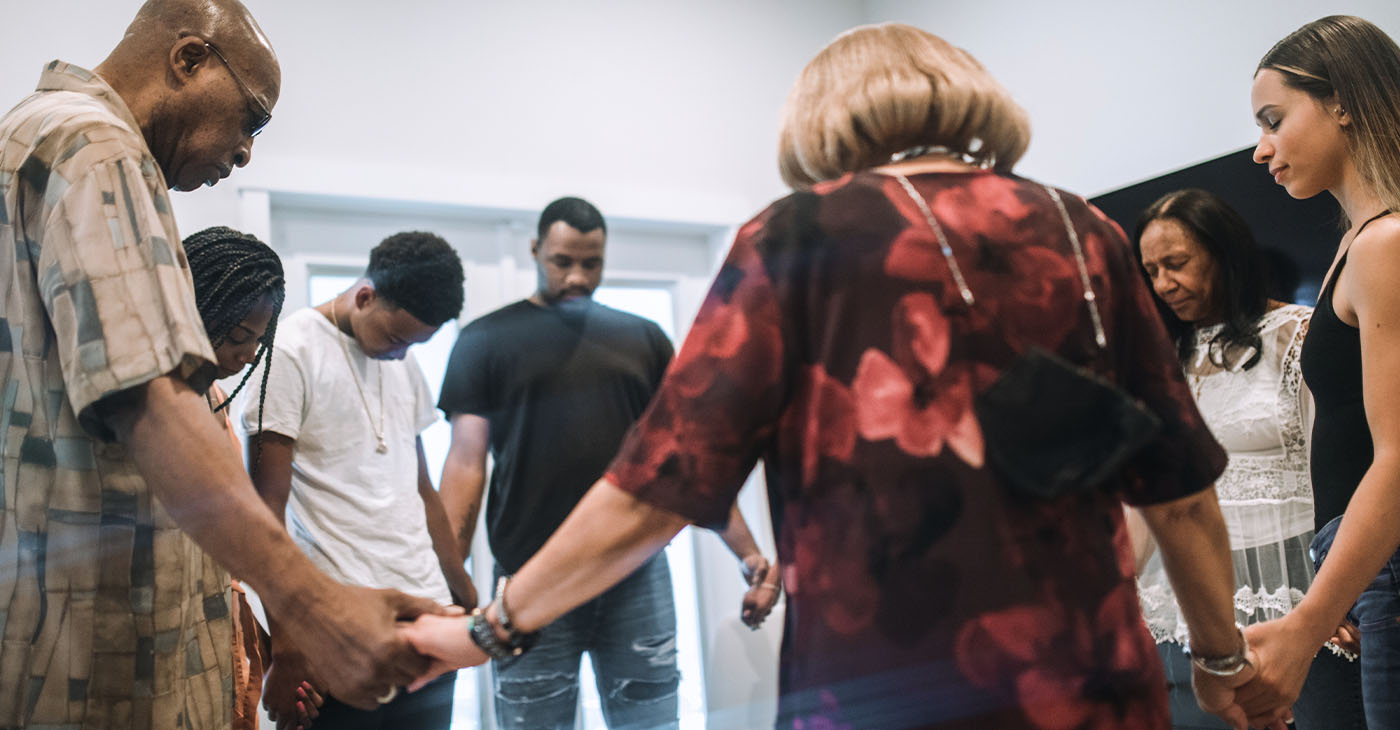
Faithful Utterances
By Dr. Froswa Booker-Drew | Texas Metro News
This week, a friend informed me that she was following the ambulance to the hospital with her husband. Her husband was going through a major health crisis. She wasn’t the only one who reached out—a friend’s mother had unexplained pain and another friend contacted me about her friend’s son who was hospitalized with pneumonia. Each of them asked that I pray for them.
I consider it an honor to pray for others. Prayer is powerful and I love that I have a group of friends who I can turn to that I call the “prayer warriors” that when I send a text to lift up the concerns and issues of others before God, they go into battle mode.
Prayer is a weapon and I think many of us don’t understand its power until we need it. For many of us, it’s a routine, something that’s more about religion than it is about relationship. We have gotten prayer twisted as some exchange solely for stuff. God is not a celestial Santa Claus dropping off gifts. Prayer is an opportunity to go before to God sincerely in relationship. “And when you pray, you must not be like the hypocrites. For they love to stand and pray in the synagogues and at the street corners, that they may be seen by others.
Truly, I say to you, they have received their reward. But when you pray, go into your room and shut the door and pray to your Father who is in secret. And your Father who sees in secret will reward you. And when you pray, do not heap up empty phrases as the Gentiles do, for they think that they will be heard for their many words. Do not be like them, for your Father knows what you need before you ask Him.” (Matthew 6:5–8)
Prayer is about faith. It is believing that God hears us. “Let us then with confidence draw near to the throne of grace, that we may receive mercy and find grace to help in time of need.” (Hebrews 4:16) I realize that my prayers are even more powerful when I am in relationship with others seeking God: “For where two or three are gathered in my name, I am there among them” (Matthew 18:20). It’s dangerous when we see prayer as a way to manipulate God into doing what we want. There is nothing wrong with bringing your requests before God but it’s important to check our motivation and intention. It’s also important to know that just because God doesn’t answer our prayers in the way that we want does not mean that God doesn’t love us.
It doesn’t mean that God does not hear us. It does not negate the omnipotence or goodness of God, either. We must believe that God is able. “And without faith it is impossible to please God, because anyone who comes to him must believe that He exists and that He rewards those who earnestly seek him.” (Hebrews 11:6) It’s easy to blame God when things don’t go the way we want them to—”the rain falls on the just and the unjust” (Matthew 5:45).
Terrible things happen to good people often. We live in an unjust world with people making decisions that are informed more by profit than people. We cannot take those principles into our relationship with God. We must believe that “… all things work together for good to them that love God, to them who are the called according to His purpose.” (Romans 8:28) …. God is concerned with our hearts, with people and cares for us even when things don’t go the way we’d like. I can report that all of the individuals we prayed for had excellent results.
God is good! Yet, I realize that this isn’t always the case. Prayer is powerful. God wants us to have this daily form of communication. 1 John 5:14, tells us: “And this is the boldness we have in Him, that if we ask anything according to His will, He hears us.” Don’t use prayer just when you need something. Just as all relationships require consistent communication for growth and results, the same is even more important in our relationship with God. Prayer is a powerful partnership with God that can move mountains when we believe!
Dr. Froswa’ Booker-Drew is the host of the Tapestry Podcast and the author of three books for women. She is also the Vice President of Community Affairs for the State Fair of Texas. To learn more, visit drfroswa.com.
Black History
AFRICAN-ISH: The First Christmas Story
Both Joseph and Mary were of the lineage of David, Joseph descended from David’s son Solomon (and Bathsheba), and Mary extended from another son Nathan. Therefore, they were required to go to the little town of Bethlehem, in Judea and there, in a cattle shed Jesus was born. (Bethlehem is 70 miles south of Nazareth and 5 miles southwest of Jerusalem).

By Simon Burris
The narrative of Jesus’ birth and proof of his Hamitic (Black) African bloodline* began in the Old Testament in the book of Genesis chapter 10, in the Land of Ham, located in southwest Asia and Africa. Three most prominent Hamitic personalities: Abraham, Isaiah and David.
People and places of Hamitic origins are underlined.
(1) Abraham the patriarch was Babylonian (Ethnic Ethiopian). Gen. 11:31; (2) Isaiah a prophet lived 750 years before Christ, predicted the virgin birth was a nephew of Amaziah a Judahite (Canaanite) king; and (3) David the great king of Israel was a descendant of Abraham, also of Tamar and Rahab (Canaanites).
The (Hamitic) Genealogy of Jesus Christ: Matthew 1:1-17; Luke 3:23-34
The Birth of Jesus: (about 6-4 BC)
Mary the virgin mother of Jesus and her husband Joseph the “foster” father of Jesus, a carpenter, lived in Nazareth, a town in northern Palestine.
At this time Emperor Augustus of the Roman Empire decreed that a census would be taken. Everyone in his domain had to go to his or her hometown to register. He probably ordered Cyrenius ( Quirinius ) the Afro Roman governor of Syria / Judeadistrict to take charge and supervise the mandate.
Both Joseph and Mary were of the lineage of David, Joseph descended from David’s son Solomon (and Bathsheba), and Mary extended from another son Nathan. Therefore, they were required to go to the little town of Bethlehem, in Judea and there, in a cattle shed Jesus was born. (Bethlehem is 70 miles south of Nazareth and 5 miles southwest of Jerusalem).
A short time later shepherds from the countryside as well as Wise Men (Magi) from neighboring countries Arabia, Babylonia,and Persia traveled to the nativity site, paid homage and worshiped the infant-Savior.
Now Joseph was warned by the Lord in a dream that Herod the Edomite king of Judea was plotting the murder of the child, fled with his family to Egypt, returning to Nazareth after the death of Herod.
Jesus had siblings, brothers Joseph, Simon, Epistle writers James, Jude, and several sisters. The last mention of Joseph occurs in the Gospel of Luke when he and Mary take the 12-year-old Jesus to Jerusalem. Mary played a vital role all through Jesus’ life, from the day He was born till the time of the crucifixion.
Conclusion: The four Gospels: Matthew, Mark, Luke and John chronicled the full theme of Christ as the universal Savior. *Descendants of Ham’s sons Cush (Ethiopia), Mizraim (Egypt), Put (Libya) and Canaan (Ancient Palestine/Israel). Genesis 10: 6-20
Footnotes: Why is Christmas celebrated on December 25?
The ancient Romans celebrated the winter solstice on December 25 as the birthday of the SUN; the Babylonians and Persians -SON of the SUN. Some 300 plus years after Jesus’ earthly demise, Roman Emperor Constantine in 336 legalized this date as the birthday of the SON of GOD – JESUS the CHRIST! Originally: Christ’s Mass.
Eurocentric racism: Pope Julius II in 1508 commissioned Michelangelo, Raphael and other Renaissance artists and church scholars to portray and depict almost all major biblical characters as Europeans (Caucasians), save servants and slaves.
Activism
SDA Churches Join Outreach Efforts to Find Solutions to Upsurge of Violence
the Northern California Conference of Seventh Day Adventists (SDA) held their annual Convocation at Grand Avenue Seventh Day Adventist Church in Oakland. Seven hundred people came together in celebration and worship. The theme was “Embracing Change.”
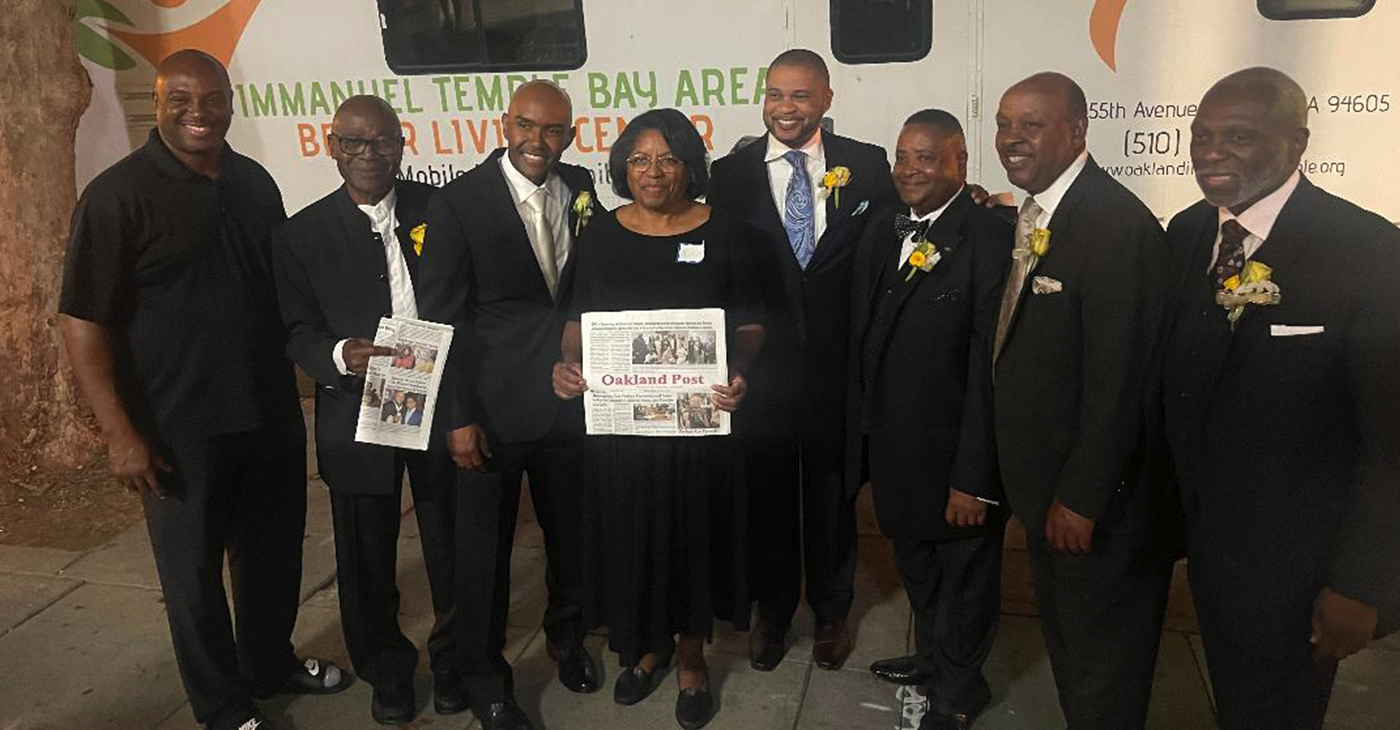
By Post Staff
On Oct. 8, the Northern California Conference of Seventh Day Adventists (SDA) held their annual Convocation at Grand Avenue Seventh Day Adventist Church in Oakland. Seven hundred people came together in celebration and worship. The theme was “Embracing Change.” The guest speaker was Dr. Myron Edmonds, who pastors in Cleveland, Ohio. He spoke about how Christ wasn’t a traditionalist, and the work isn’t being done because some in the church don’t wish to change and they tend to demonize new ideas.
Throughout the day, the Mobile Medical Health Van operated by Immanuel Temple Seventh Day Adventist Church out of Oakland sat in front of the church and provided health screenings and community resource information to the general public. The Medical Van, which was gifted to the church by Pastor Raymond Lankford of Healthy Communities, has provided free health care services throughout Alameda County for the last few years. The prayer of Pastor Damon Washington of Immanuel Temple Church, who was ordained during the afternoon program, is for their health ministry to partner with the other providers like OPIC and Oakland Workforce Agencies and to combat the ongoing health disparities and violence within the city and beyond.
They have pledged to work with the Chaplains, the OPIC and the Formerly Incarcerated Giving Back, who want to make amends for the damages they have done to harm Oakland.
-

 Activism4 weeks ago
Activism4 weeks agoOakland Post: Week of March 20 – 26, 2024
-

 #NNPA BlackPress3 weeks ago
#NNPA BlackPress3 weeks agoMayor, City Council President React to May 31 Closing of Birmingham-Southern College
-

 #NNPA BlackPress3 weeks ago
#NNPA BlackPress3 weeks agoFrom Raids to Revelations: The Dark Turn in Sean ‘Diddy’ Combs’ Saga
-

 #NNPA BlackPress3 weeks ago
#NNPA BlackPress3 weeks agoCOMMENTARY: D.C. Crime Bill Fails to Address Root Causes of Violence and Incarceration
-

 #NNPA BlackPress3 weeks ago
#NNPA BlackPress3 weeks agoCOMMENTARY: Lady Day and The Lights!
-

 #NNPA BlackPress3 weeks ago
#NNPA BlackPress3 weeks agoBaltimore Key Bridge Catastrophe: A City’s Heartbreak and a Nation’s Alarm
-

 #NNPA BlackPress3 weeks ago
#NNPA BlackPress3 weeks agoBaltimore’s Key Bridge Struck by Ship, Collapses into Water
-

 Activism3 weeks ago
Activism3 weeks agoOakland Post: Week of March 27 – April 2, 2024

